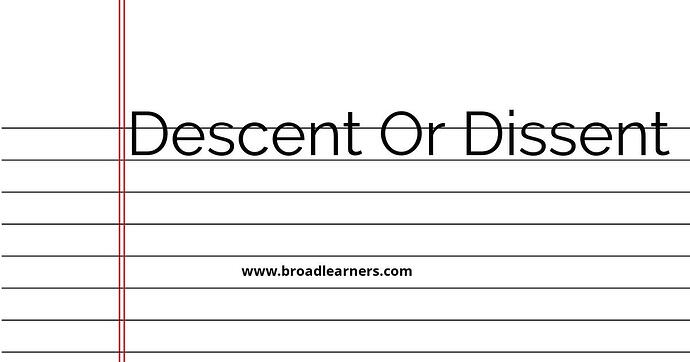'Descent' and 'dissent' are commonly confused words in English grammar. Understanding the difference between 'descent' and 'dissent' is important to use them correctly in written and spoken English.
'Descent' refers to the act of moving downward or a downward slope. It can also refer to the origin or ancestry of a person or group.
'Dissent' refers to the act of expressing disagreement or holding a different opinion from others.
Let's take a closer look at the meanings and usage of 'descent' and 'dissent'.
| 'Descent' | 'Dissent' |
|---|---|
| The word 'descent' is used to indicate a downward movement or slope. | The word 'dissent' is used to indicate disagreement or holding a different opinion. |
|
|
To remember the difference between 'descent' and 'dissent', it can be helpful to focus on their meanings. 'Descent' refers to downward movement or origin, while 'dissent' refers to disagreement or holding a different opinion.
Here are some examples of correct usage:
- The plane began its descent towards the runway.
- She is of Italian descent.
- Many people dissented from the proposed policy changes.
- He expressed his dissent during the debate.
Remembering the correct usage of 'descent' and 'dissent' will improve your grammar and communication skills.
